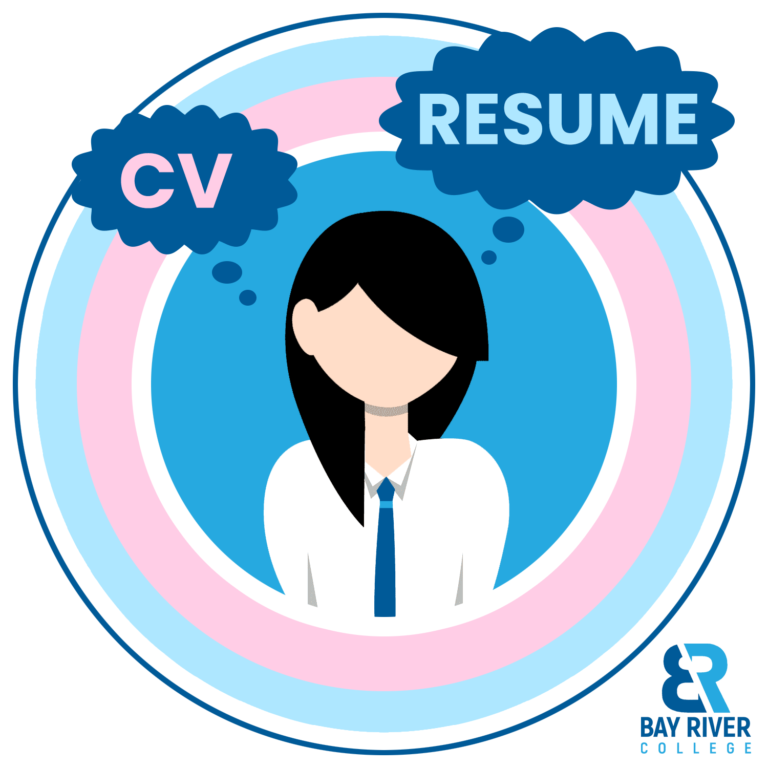Resume or CV (Curriculum Vitae)?
In the job market, knowing whether to use a CV or a resume in Canada is key for job seekers. While both serve to present your qualifications and experience, there are clear differences in structure, length, and usage, depending on the industry.
CV vs Resume in Canada: Understanding the Distinction
A Canadian CV (Curriculum Vitae) is a comprehensive, multi-page document that details an individual’s academic background, research, publications, presentations, and teaching experience. It’s most commonly used in academic, research, or scientific fields, where a thorough record of professional accomplishments is essential.
A Canadian resume, in contrast, is concise—usually one to two pages long—and tailored specifically to the job you’re applying for. It highlights relevant skills, work experience, and quantifiable achievements. A resume is widely used across most industries in Canada, including business, marketing, administration, and technology.
So, when you’re deciding between a CV or resume, consider your industry, experience level, and the position you’re applying for.
Is a Resume the Same as a CV?
Is a resume the same as a CV? Are CVs and resumes the same? The answer is no, especially in Canada. While both documents present professional background and achievements, they do so in very different ways. Understanding the difference between a CV and a resume helps you choose the right format for your job search.
- A CV includes detailed academic credentials and often spans several pages.
- A resume, on the other hand, is short and highlights only the most relevant experience and accomplishments.
This CV versus resume in Canada comparison is important if you want to present yourself effectively to Canadian employers.
Format and Content: What’s the Difference Between CV and Resume?
Another point for job seekers to note in the resume vs CV in Canada discussion is formatting:
- A CV is structured chronologically, often listing all achievements from most recent to oldest.
- A resume may use chronological, functional, or combination formats and focuses on skills and results aligned with the job posting.
Both documents should include personal details, education, and professional experience, but a CV may also contain sections like research interests, publications, scholarships, grants, and academic memberships. What is the difference between a CV and a resume in a nutshell? It comes down to length, focus, and intended use.
How to Write a Good Canadian CV and Resume
Creating a compelling CV or resume in Canada involves tailoring your content to the job and industry. Whether you’re submitting a CV or resume in Canada, keep the following in mind:
- Use industry-specific keywords for applicant tracking systems (ATS)
- Ensure that the formatting is consistent and professional
- Emphasize achievements and measurable outcomes
- Customize the content for each application
Knowing how to be concise in a resume or how to detail research in a CV can significantly improve your chances in the job market.
Who Can Help You Build Your Resume and CV?
At Bay River College, our Career Counseling supports students in creating strong, tailored resumes and CVs. Whether you’re preparing for roles in academia or industry, our team guides on:
- Formatting and keyword optimization
- Writing impactful summaries and job descriptions
- Matching your application to Canadian employer expectations
Our goal is to help you transition smoothly from student to professional, equipped with effective career tools and strategies.
Need help getting started?
Frequently Asked Questions
Question: Do Canadians use CV or resume?
Answer: In most industries, Canadians use a resume rather than a CV. The resume is the preferred document for applying to jobs in business, healthcare, tech, and trades. However, a CV is commonly used in Canada for academic, research, or scientific positions. Understanding whether to use a CV or a resume in Canada depends on your field and the job requirements.
Question: Which is better, a CV or a resume?
Answer: It depends on your career path. If you’re applying for roles in academia or research, a CV is better because it showcases detailed academic achievements. For most other roles, a resume is better due to its concise format. When comparing CV vs resume Canada, resumes are more widely used across non-academic industries.
Question: Is it better to apply with a CV or a resume?
Answer: Generally, it’s better to apply with a resume in Canada, unless the job specifically requests a CV. Resumes are short, targeted, and easier for employers to scan—ideal for most sectors. Knowing what’s the difference between a CV and a resume helps ensure you’re using the right document for each opportunity.
Question: Is it better to send a CV or a resume?
Answer: You should send whatever the job posting asks for. In most Canadian job applications, it’s better to send a resume, especially in corporate, tech, and administrative fields. If you’re unsure whether to send a CV or resume in Canada, default to a resume unless you’re applying in academia or research.

